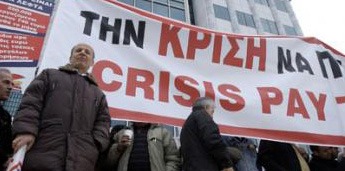By Chris Webb
About a month ago I stood with some 200 striking farm workers in South Africa’s Hex River Valley, a rich agricultural region that produces table grapes for export. The workers were on strike against severe pay cuts and outsourcing, which came about when a major fruit export company took over the farm from its previous owner. The workers were a mixed group. Some were Zimbabwean migrants, but the majority were Xhosa speakers from the more impoverished Eastern Cape, where 72 percent of the population lives below the poverty line. Most of them currently lived in the valley’s informal settlements, expanses of matchbox houses and zinc shacks on the dusty ground between the grape farms. As we marched toward the farm, the workers began to sing struggle songs praising the African National Congress (ANC) and the role of struggle leaders like Oliver Tambo and Chris Hani.


